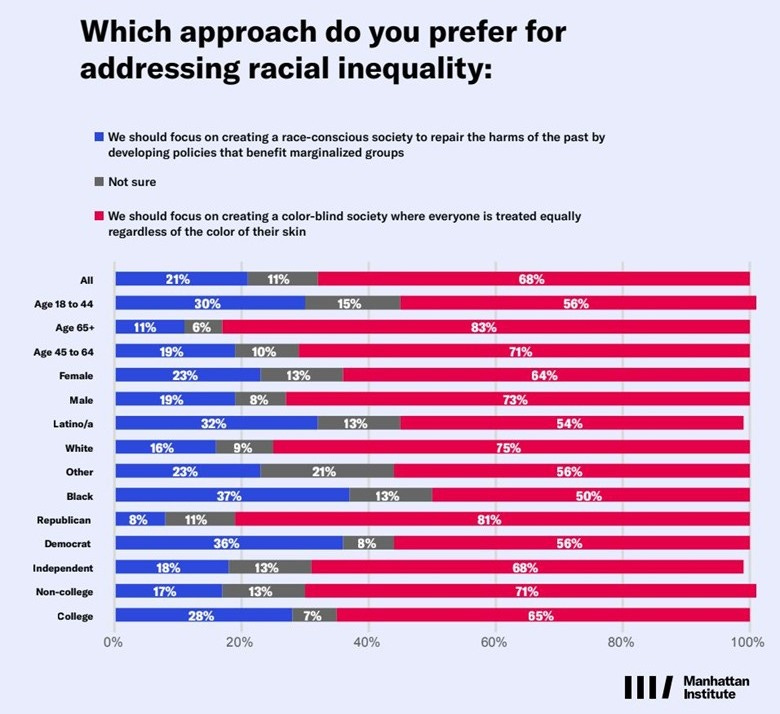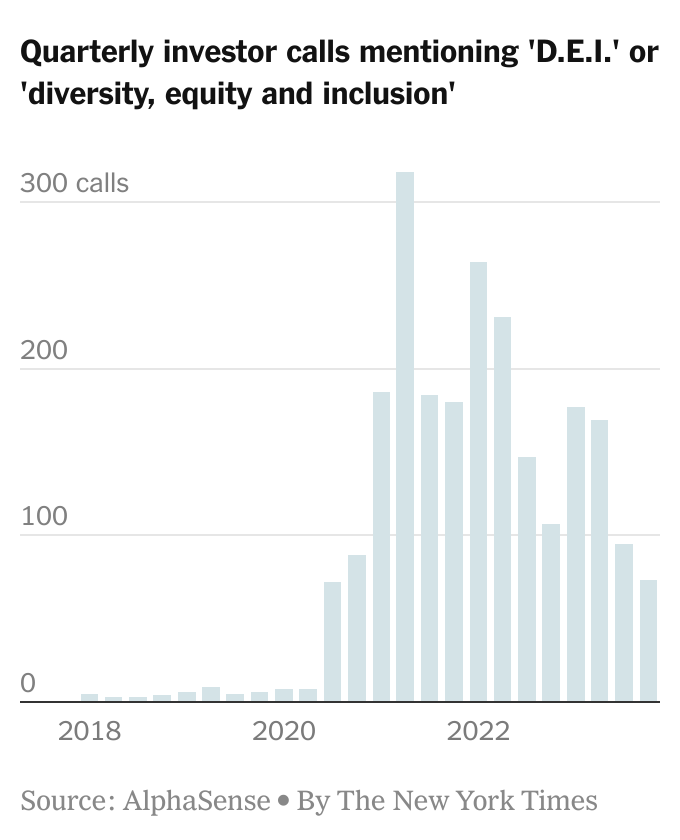Yes, We've Reached "Peak Woke"
Bill Maher's new book is already incredibly dated, and that's a good thing.

I just finished reading Bill Maher’s recent book, What This Comedian Said Will Shock You (2024), and, well, it did shock me. I wasn’t shocked by the format — a collection of re-worked “New Rules” segments and editorial monologues from Maher’s show, Real Time with Bill Maher (2003–). I wasn’t shocked by his political views, opinionated attitude, or equal-opportunity iconoclasm. And I’ve never been shocked that so many people across the political spectrum detest him. Making fun of everyone in society with jokes that often cut a little too close to home tends to do that. No, what struck me while reading What This Comedian Said, despite its laugh-out-loud hilarity, was how dated it also felt, even though the vast majority of its material is from 2019–2023.
Maher writes that in going back through over 20 years of his own archives, he was able to see, in the clearest possible way, how drastically politics have changed. I felt the same thing while reading, though not quite in the way Maher may have intended. What shocked me was the realization of just how much society has pulled back from the far-left cultural madness of the late-2010s and pandemic era.
This isn’t the first time I’ve thought we’d reached “peak woke.” In the months after the infamous 2017 “Unite the Right” rally in Charlottesville, Virginia, I thought society had finally turned a corner. The grotesque spectacle of neo-Nazis marching openly, and the ensuing violent clashes that left three dead and dozens injured, seemed to clear our collective minds like smelling salts. For a brief, mirage-like window of time, it appeared as though folks left-of-center turned away from their circular firing squads to focus on an actual threat. It didn’t last. Maybe I was only seeing what I wanted to see.
Early in 2023, I once again caught glimpses of what appeared to be a shift. In pieces covering topics as far flung as diversity quotas in elite Canadian youth hockey to sensitivity readers and stealth editing here in the US, I cautiously wondered aloud whether we were seeing the tides beginning to turn. But I’d been burned before, and wasn’t quite yet ready to commit. Now, I am.
The ability to see an extensive compilation of the most egregious excesses of the cultural far left over the past five years, all gathered in one place, was an enormously clarifying experience. Though Maher’s book slams the political right every bit as often as it does the left, looking back at the social justice politics from just a few years ago seems jarring in a way that the right-populism of a few years ago doesn’t. If anything, the hard right is more powerful today than it was in 2020. Time and again while reading, each social justice scandal, controversy, meltdown, or cancellation seemed like a blast from the past despite its relative recency. Plugged in as I am, I remembered nearly every incident, and then thought to myself, “Man, when was the last time I’ve heard a story like that?”
When was the last time I came across major publications replacing the word “women” with “birthing people”, “menstruators”, or “bodies with vaginas”; or arguing in earnest that sports shouldn’t be separated by sex; or suspending a journalist for retweeting a throwaway joke? I can’t recall the last time I saw media outlets cannibalize their own after internal revolts as happened to Donald McNeil, James Bennet, Alexi McCammond, or Rachel Nichols. I can’t remember the last time I heard about celebrities apologizing in a cold sweat for flubbing a movie title (Michael Keaton), or calling an actress beautiful (Steve Martin), or liking the wrong book (Winston Marshall), or getting married at a venue that was a plantation 150 years ago (Ryan Reynolds). Or online mobs denouncing folks for the unforgivable sin of not posting the right kind of black square on Instagram (Emma Watson), or losing excess weight (Adele), or curing the blind (Mr. Beast).1 Or theaters issuing trigger warnings about “haze” or “moments of darkness”, or online sleuths trolling through every word someone ever said to get them un-hired from hosting Jeopardy or joining Saturday Night Live.
It’s been a while since I encountered news stories about statues of George Washington or Ulysses S. Grant being toppled, or Abraham Lincoln’s name being removed from schools. Or grade schools teaching kids that white colonizers created the gender binary, or children’s books that say white men invented fat shaming.2 I don’t hear about professors being disciplined for cracking silly elevator jokes, or being accosted by shrieking students over Halloween costumes, or being suspended and forced to write “reflection papers” for including redacted slurs in a law school exam. No one is getting fired for making an “okay” hand symbol these days, or being ousted from their Senate seat over a joke photograph, or being forced to resign from their job for having a consensual relationship with a 49-year-old executive.
I could go on forever. I’m not saying these things never happen anymore, I’m saying I can’t remember seeing them in at least the past 12–18 months. I can’t recall the many writers, publications, and podcasts I follow covering them. I can’t recall seeing discourse about them on social media. I can’t recall anyone from my real-life social circles bringing them up in conversation. Even if the far left’s excesses had not receded one iota, the mere fact that we hear about them less in and of itself dramatically reduces their salience in the culture. But in point of fact, they have receded.
So many of the social justice trends of the past few years have faded. “LatinX” is long dead, police forces across the nation have grown, San Francisco has rediscovered civilization, and elite colleges have reinstated the SATs. Word-searching The New York Times, the terms “white supremacy” and “white supremacist” were used a combined 813 times in 2020, 662 times in 2021, 455 times in 2022, and 340 times in 2023. In 2024, it’s on pace to appear 254 times. This all sounds a lot like “peak woke” to me.
As an editor, I’ve also seen this shift firsthand. In late 2023, one of the magazines I work for made the editorial decision to no longer mention, address, or define anything related to critical social justice. We determined that the backlash to the cultural far left had gone mainstream and that we no longer needed to educate our audience about what these ideas were and why they were illiberal. We had reached the point where we felt we could safely assume that most readers outside of the far left would not only be aware of these ideas, but rightfully hostile to them. The data backs this up.
A July 2024 survey from the Manhattan Institute found that 68 percent of US adults prefer “color-blind” policies that treat everyone the same regardless of race compared to just 21 percent who want “race-conscious” policies that favor certain groups. Color-blindness was preferred by majorities of college graduates, independents, Democrats, young people, women, and racial minorities. Not a single demographic cohort supported race-consciousness over color-blindness. The same poll found that 71 percent favor merit-based hiring over racial preferences, and that a plurality support ending mandatory diversity training, ending government funding for DEI (diversity, equity, and inclusion) at colleges, and banning affirmative action at colleges.

Indeed, it’s not just voters. A reliable indicator of when something is “in” or “out” is where corporate America sits vis-à-vis its bandwagon. According to a 2024 New York Times article, in the wake of the summer of 2020, “companies hired DEI officers in droves.” More recently, however, “DEI programs have become less visible. Over the past two years, hiring for DEI roles has plunged.”

We can also see this shift represented in political rhetoric. In striking contrast with the 2020 Democratic primaries, where nearly 30 candidates comically vied to out-“woke” one another at every turn, in 2024, the Democratic nominee sidesteps identity politics, shuts down anti-Israel hecklers, and drapes herself in the mantle of patriotism. During the American flag-bedecked Democratic National Convention, two former presidents spoke out against the toxic and illiberal culture that characterized some of the ugliest trends of the past few years. Former President Bill Clinton implored Dems to “meet people where they are. I urge you not to demean them.” Former President Barack Obama spoke at some length about the need for more open-mindedness and grace:
“That sense of mutual respect has to be part of our message. Our politics have become so polarized these days that all of us across the political spectrum seem so quick to assume the worst in others unless they agree with us on every single issue. We start thinking that the only way to win is to scold and shame and out-yell the other side. And after a while, regular folks just tune out, or they don’t bother to vote. [...] Our fellow citizens deserve the same grace we hope they’ll extend to us.”
Whether or not this change in approach is sincere is irrelevant. The very fact of the change indicates that campaign strategists believe — and internal polling confirms — that identity politics are politically cancerous.
The cultural far left have never been popular, or widely liked. Spend any amount of time among them and it soon becomes clear that they even despise one another (and themselves). And yet, through the combination of institutional control, youth and pop culture, Twitter, fear, and clever branding that beguiled many liberals on the center-left, “wokeness” ruled broad swaths of the culture with a raised iron fist for years. Eventually, the spell of fear was broken. The transformation of Twitter in particular, from the online left’s home base and personal megaphone to the right-wing cesspool Elon Musk has turned it into, neutered this most potent tool. Without the power of the mob, the culture of fear folded like a house of cards. With overwhelming numbers at their backs, online leftists seemed intimidating. As solitary individuals, they are about as menacing as a kitten — an entitled, under-employed, emotionally stunted, deeply mentally ill kitten.
Of course, there is still a lot of lunacy on the hard left. Just look at the Israel/Palestine issue, or the coddled, sexless weirdos who equate “safety” with purging life of all spontaneous romance, arbitrarily defined “power imbalances”, and human bodily contact. Elite colleges are still Maoist asshole factories where most of the past decade’s madness seems to have simply become the new norm. The point is, saying we have passed “peak woke” doesn’t necessarily mean all traces of the cultural far left’s excesses have suddenly vanished. Just because a mountain climber who reached Everest’s peak begins their descent doesn’t automatically beam them to the foot of the mountain. There’s still a long, long road back down. And while we have finally reached “peak woke”, there appears to be no analogous forthcoming breaking point for the political right, who grow more deranged and conspiratorial by the day.
As someone who doesn’t derive meaning or identity from my opposition to left-wing extremism, I am both able and happy to acknowledge that progress has been made here. I’m tempted to add the caveat that this could all change depending on the outcome of the coming election, but I’m not sure I actually believe that. Living through a mass psychosis or being in a cult, and coming out the other end with some semblance of sanity, is a powerful inoculation. Societies can forget the madness of the past. Generations can disregard the lessons learned by those who lived before them. But it’s much harder and rarer to collectively forget the lessons learned just a couple years ago.
At one point in What This Comedian Said, Maher writes “I’m hopeful a backlash to this insanity has begun.” It has, but “backlash” doesn’t fully describe it. What we’re seeing appears less a backlash than a collective moving on — a cringing mystification that we ever put up with ideas and behaviors so obviously absurd, repellent, and antithetical to the kind of society in which any reasonable person wants to live. I have no doubt that a future Republican president will inflame the perpetually gasoline-soaked tinderbox that is the far left. What I do doubt is that large numbers of more moderate people will tolerate far-left assholism as they did in years past. I doubt that people will tolerate a backslide into the very worst of cancel culture, political correctness, struggle sessions, constant fake outrage controversies, and psychopathic back-stabbings cloaked in the rotting garb of moral purity. That tolerance is, I think — I hope — finally at an end.
See also: “Religion Is Not the Antidote to ‘Wokeness’”
Subscribe now and never miss a new post. You can also support the work on Patreon. Please consider sharing this article on your social networks, and hit the like button so more people can discover it. You can reach me at @AmericnDreaming on Twitter, or at AmericanDreaming08@Gmail.com.
Now everyone is on Ozempic. It’s funny how the moment weight loss became effortless, so much of the fatphobia hysteria was dialed way down.
“Before you were born, a group of white men started making up lots of ideas about bodies that weren’t true. They said that one kind of body was the best, and that being fat was bad and skinny was good. They were wrong, but lots of people listened to them.” From Every Body (January 2023) by Megan Madison & Jessica Ralli.





It definitely makes me wonder if this election we face will reignite it or, as I’m starting to suspect, will prove that it’s finally dead, regardless of who wins. The probability of a Trump victory causing a reignition is probably greater than a Harris victory but I’m not seeing much hysteria about Trump these days. I see hatred which whatever, that’s normal. There was hatred for Romney, Obama, McCain, Bush, Kerry. The “saving democracy” rhetoric is there but I’m not seeing it outside the campaigns themselves.
The question of what comes next does trouble me. Our culture loves taking things too far.
The biggest change for me has been my Facebook feed. Very few people are constantly angry about politics compared to 2014-2021. They've all moved on to their lives and families.
Freddie DeBoer has often compared the Woke Era to the post-9/11 Era in that paranoia and fear ruled for years, and then it quietly became passe because people got tired. I think that's spot-on.